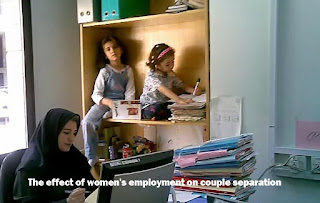The born Children from modern fertility from a jurisprudence and legal point of view (Article: Children Custody )
a Samira Mozaffari Laqa ,b Mahmoud Aghajani, ''Investigating the custody status of children resulting from new fertility from the perspective of Imamieh jurisprudence and Iranian law''2nd International Conference on Research in Humanities , Rostock University, Germany , (July 2020)
a M.A in Family Law, Department of Islamic Law and Education, Kerman Branch, Islamic Azad University, Kerman, Iran
b Ph.D. in Jurisprudence and Islamic Law, Assistant Professor of Islamic Jurisprudence and Foundations, Kerman Branch, Islamic Azad University, Kerman, Iran
Site address and place of publication of the article: http://www.acbconf.com/en/
The focus of the Conference: Humanities, Law
Article Axis: Investigating the Custody of Children Born of Modern Fertility, Law
Investigating the custody status of children resulting from new fertility from the perspective of Imamieh jurisprudence and Iranian law
Abstract
One
of the most important issues for couples during their life together is having a
child. The main cause of marital discord is the infertility of couples the development of new methods of reproduction has led
to the treatment of infertility in couples and the consolidation of the family
foundation. The use of such methods raises a number of jurisprudential and
legal questions, including the issue of custody of these children in the
couple's mind. The aim of this study is to examine the views of Imamieh
jurisprudence and Iranian law on the status of custody of children born of new
fertility. In it, we discuss who is responsible for the care of these children.
The research method is descriptive-analytical and the collection of information
is library and from available resources.
Keywords: Custody, New fertility, Imamieh Jurisprudence, Iranian Law
Conclusion
By researching the issue of child custody resulting from new fertility, we came to the conclusion that there are different views on child custody in general, apart from natural or artificial fertility in Imamieh jurisprudence and Iranian law. Some consider it the right of father and paternal ancestor. Some have also given custody to the mother. Accordingly, in Iranian law, custody of a child, whether it is a boy or a girl, is granted to the mother until the age of seven, and then with the father. In this regard, Imamieh jurisprudence and Iranian law consider it necessary for a person who takes custody of a child to have a number of characteristics, and if any of them does not exist, custody is entrusted to another person for the benefit. The Iranian legislature also states a number of cases in Article 1173 of the Civil Code that if a person custody of a child commits them, the custody of the child will be revoked by the judicial authority. In the case of children born of new fertility, considering that the said children are the legal children of the owners of sperm and eggs and have a relative relationship with them. Therefore, all the jurisprudential and legal rules and regulations stated regarding natural children also apply to them. Except in the case of human cloning, in which the child is held in custody by a person with a physical cell due to the creation of a child using a physical cell, unless a marriage takes place between the person holding the physical cell and sex, in which case custody of the child is with both. In the surrogate method, both the mother of the child (the genetic mother and the surrogate mother) have the right to visit the child.
How To Cite The Article:
If you want to refer to this article in your research work, you can simply use the following phrase in the resources section:
Inside the text, wherever a phrase or achievement of this article is mentioned, after mentioning the content, the following specifications are written in parentheses.
For the first time: (Mozaffari Leqa, Samira; Mahmoud Aghajani, 2020)
For the second time onwards: (Mozaffari Lagha ; Aghajani ,2020)
Scientific Sponsors Of the Conference Proceedings








Comments